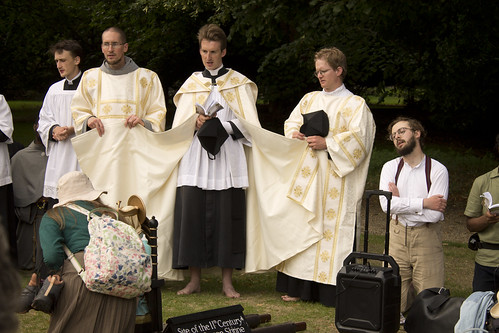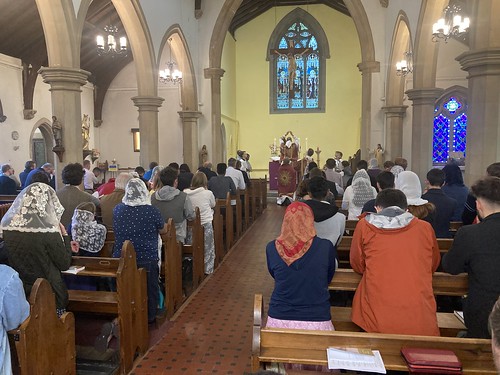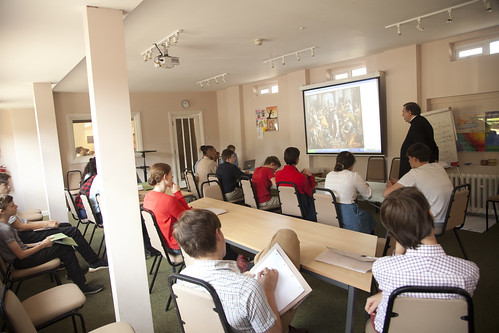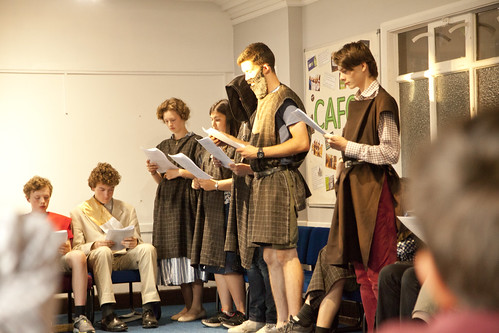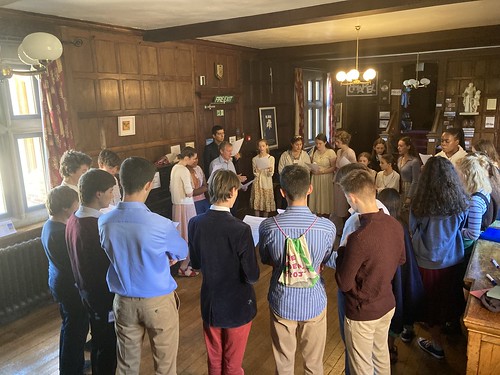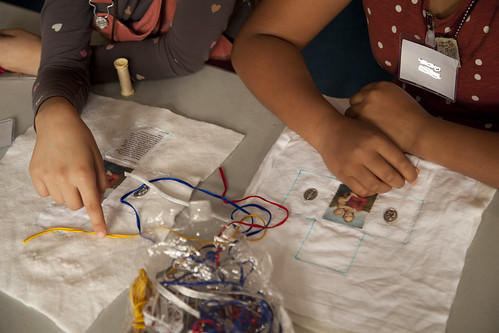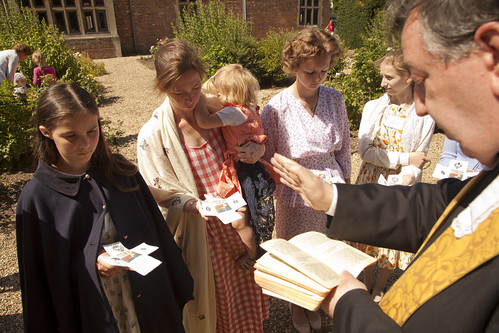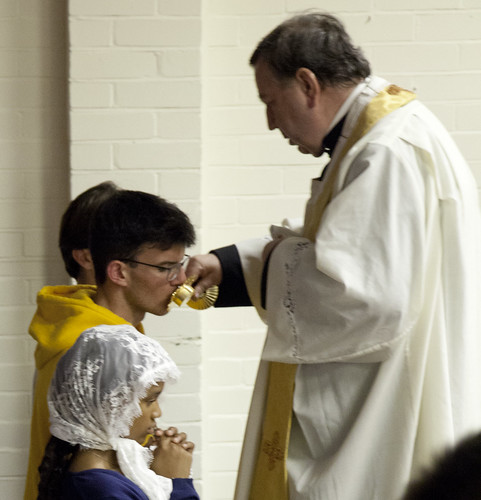Chairman's Blog
Latin Mass Society: new office!
Our new address is:
Website, email, and phone number all remain the same.
Our archives reveal, the Society first rented an office on Blandford Street, Marylebone west London, above what is now a restaurant. Prior to that the postal address was 159 Montague Mansions, London W1. In 1981, the Society moved to Cork Street and, in 1991, to an office in Corpus Christi Church, Maiden Lane. Two years later, in 1993, we leased our first office in Lupus House, 11-13 Macklin Street before moving to our present, larger, office sometime later.
Our move to 9 Mallow Street, London EC1Y 8RQ has now taken place. As we have been closed for two weeks, it will take the staff sometime to catch up with adminstration, processing shop order etc. We thank you for your continued patience and understanding.
Prayer for King Charles, after Sunday Traditional Mass
In England and Wales, after the principle Mass on Sunday, we say a Prayer for the Sovereign. The prayer dates back to the 15th century and is used around the world for Catholic monarchs, and a version has even been used for republics where there has been a Concordat with the Pope. The Bishops of England and Wales must have sought and recieved permission to use it for the British sovereign, to emphasis their loyalty; it has been used here since 1850.
V. Dómine salvum fac Regem nostrum Carolus.
R. Et exáudi nos in die, qua invocavérimus te.
Oremus.
Quǽsumus, omnípotens Deus, ut fámulus tuus Carolus, Rex noster, quæ tua miseratióne suscépit regni gubernácula, virtútum étiam ómnium percípiat increméntum; quibus decénter ornátus et vitiórum monstra devitáre, [in time of war: hostes superáre,] et ad te qui via, véritas, et vita es, cum regina consorte et prole régia gratiósus valeat perveníre. Per Christum Dóminum nostrum.
R: Amen.
V. O Lord, save Charles our King
All: and hear us in the day that we shall call upon thee.
Let us pray.
We beseech thee, almighty God, that thy servant Charles our King, who through thy mercy has undertaken the government of this realm, may also receive an increase of all virtues. Fittingly adorned with these, may he be able to shun all evildoing, [in time of war: to vanquish his enemies,] and, together with the Queen consort and the royal family, to come by thy grace unto thee who art the way, the truth, and the life. Through Christ our Lord.
R: Amen.
This is a jpeg of three different Chant settings of the antiphon: there are also polyponic settings. The first given here is the most commonly used one.
No, the answer is not 1965, Fr Somerville-Knapman
Cardinal Roche seems to require that the Church deny herself, and to employ her authority today to negate her authority in former days. Many will echo Benedict XVI in asking how what was holy yesterday—and indeed for preceding centuries—can suddenly be a danger to faith and the Church today. Rome is making a serious mistake in its programme to shore up the practical reception of the reformed liturgy, and in so doing is backing itself into a corner.
The liturgical reforms were expressly pastoral, intended to increase congregational participation. The severe decline in the numbers in congregations since the promulgation of the reformed liturgy over 50 years ago suggests that the reforms have not achieved their purpose. Equating the reformed liturgy—which I celebrate, but which for all its virtues has failed in its purpose—with the will of Vatican II leads logically to the conclusion that the failure is the Council’s when in fact it is the Consilium’s.
... in restricting the legitimate expression of the Roman rite to “the liturgical books promulgated by Paul VI and John Paul II” Rome has allowed some room for manoeuvre, and for saving face. The Ordo Missae of 1965 is a post-conciliar reform promulgated by Paul VI which correlates very closely to the conciliar decrees in adapting the old rite more organically to their expanded liturgical vision. It offers a basis for revisiting the reforms that have so patently failed in their purpose, a failure that restrictive legislation will not hide, but only further expose.
Fr Gwilym Evans FSSP: Mass in Cardiff 17th Sept
LMS Walsingham Pilgrimage: photos
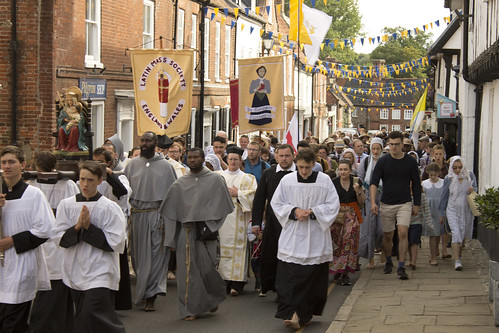 |
| Approaching the Priory grounds at the end of the Holy Mile. |
 |
| Mass in Cambridge on Thursday morning for the three pilgrims trying out an extra leg of the walk: another 18.4 miles, to Ely |
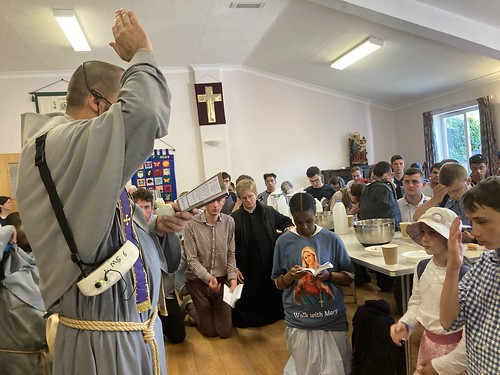 |
| Pilgrims' blessing from Fr Serafino Lanzetta. |
 |
| On the road by the Great Ouse. |
The chapel at Oxborough is undergoing repairs and the lovely reredos is covering in a dust sheet.
 |
| In the Reconciliation Chapel at the Catholic Shrine on Sunday. |
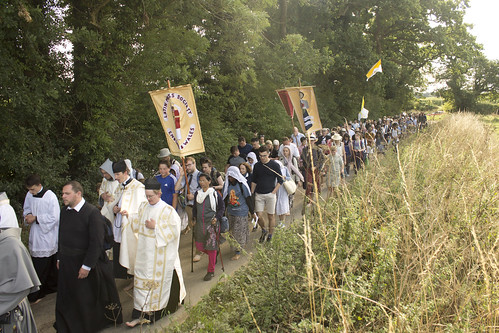 |
| The Holy Mile from the shrine to the site of the Holy House in the Priory ruins |
 |
| In the Priory grounds |
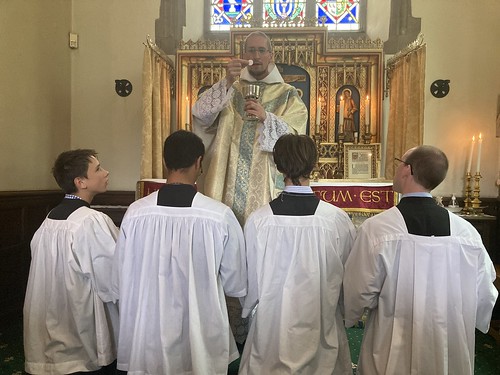 |
| Mass on Monday for those who had stayed overnight. |
 |
| An expanded cooking and support driving team rose magnificently to the occasion! |
Support the Latin Mass Society
Latin Motto from Mass of Ages
Dulcis agonista tibi convertit domus ista Pancrati memorum precibus memor esto tuorum
What does pastoral care look like?
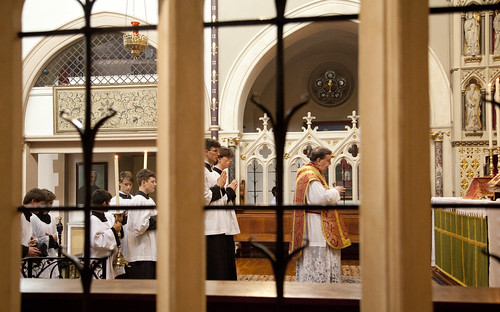 |
| The Traditional Mass behind bars: so to speak. The Oxford Oratory. |
…this Dicastery is of the opinion that this [permission] would not be an opportune decision. Therefore, we deny the request. The path established by the Holy Father in Traditionis custodes is quite clear and this has been underscored both in the “Letter to Bishops of the Whole World” which accompanied the Motu proprio and in the Responsa ad dubia of this Dicastery, which were personally approved by the Holy Father. In this latter document, with regard to this very point, it was highlighted that the liturgical reform of the Second Vatican Council “has enhanced every element of the Roman Rite and has fostered – as hoped for by the Council Fathers – the full, conscious and active participation of the entire people of God in the liturgy (cf. Sacrosanctum Concilium no. 14), the primary source of authentic Christian spirituality”. Most recently the Holy Father’s Apostolic Letter of 29 June, Desiderio Desideravi, on the liturgical formation of the people of God, expands on the above mentioned letter to the bishops and reaffirms Pope Francis’ desire that unity around the celebration of the liturgy be re-established in the whole Church of the Roman Rite (n. 61).
There is of course no difficulty for Fr [] to celebrate Mass according to the editio typica tertia (2008) of the Missale Romanum.
The Morning After Pill: abortion or contraception?
My latest on Catholic Answers wades into some of the complexities about the 'Morning After Pill', aka 'Emergency Contraception'.
It begins:
Recently, a spokesman for the bishops of Louisiana suggested that the use of so-called “emergency contraception” is compatible with Catholic teaching in cases of rape. The news article reporting this connected it with the explicit exception made for “emergency contraception” in the restriction of abortion by new Louisiana abortion laws, made possible by the Supreme Court’s overturning of Roe v. Wade. There are, however, a tangle of issues here that I will try to separate.
The Catholic Church teaches that human life is worthy of protection from the moment of conception—the moment when the genetic material of an ovum and of a sperm are united to form a new human (see the Catechism of the Catholic Church 2270 and following). The Church, further, demands that this life be protected by law (2273).
SCT Summer School: Classes and activities

To this end we have five 40-minute lessons most days, as well as Sung Mass, Rosary, Compline, and activities. Most of one day was dedicated to a trip to Oxford, where we had Mass in the Oratory and a tour of some sites of particular Catholic interest.
The week includes a quiz on what the children have learned, and we had football and tennis in the afternoons.
Every year the children perform a staged reading of part of Dorothy Sayers' radio plays on the life of Christ.
To join the mailing list email info@stcatherinestrust.org; to make a donation see here.
SCT Summer School photos: liturgy
Support the Latin Mass Society






